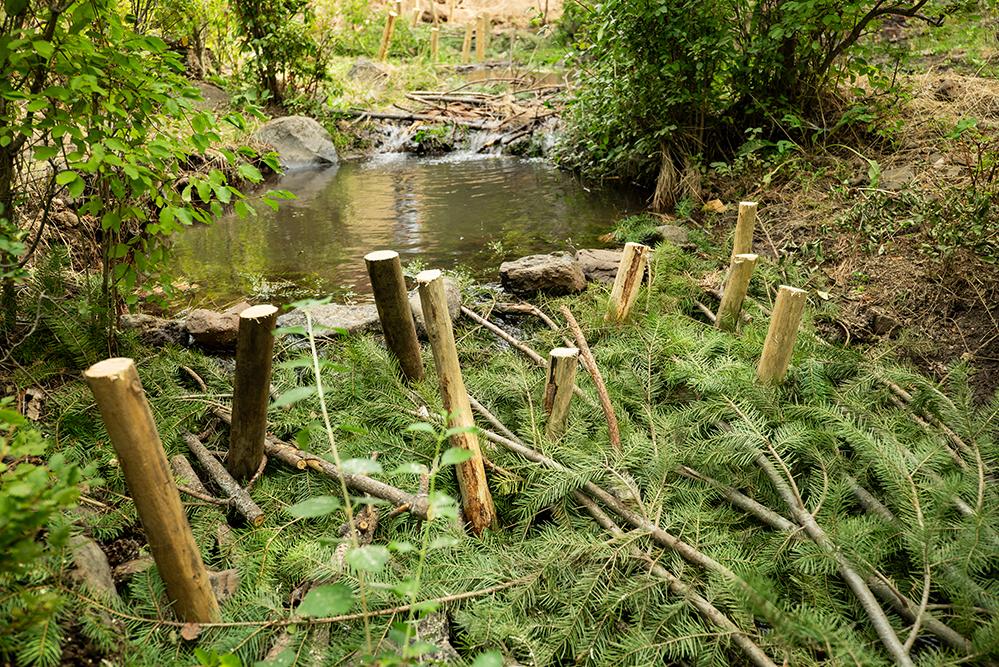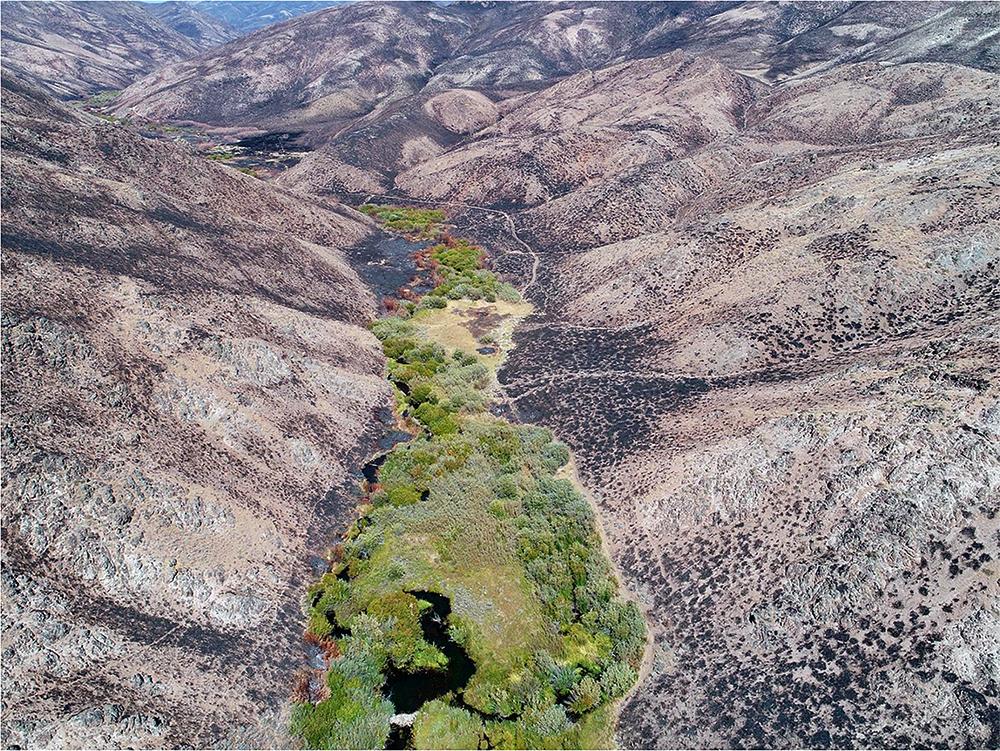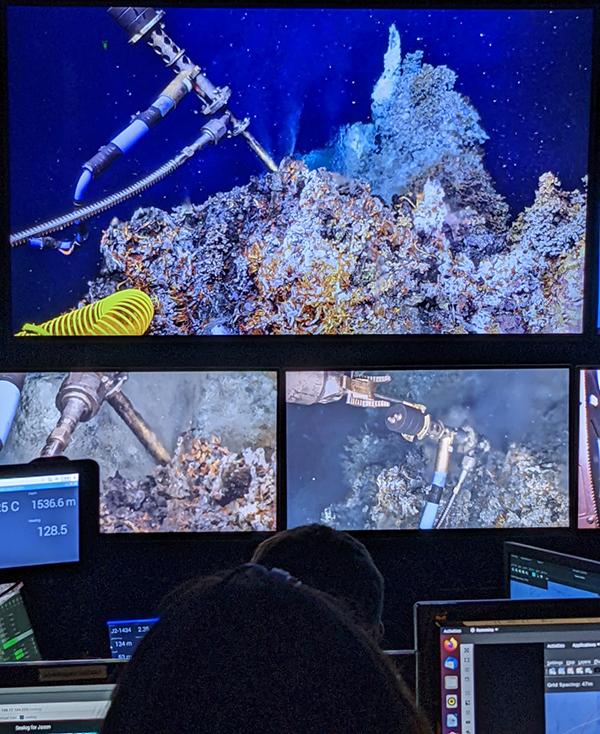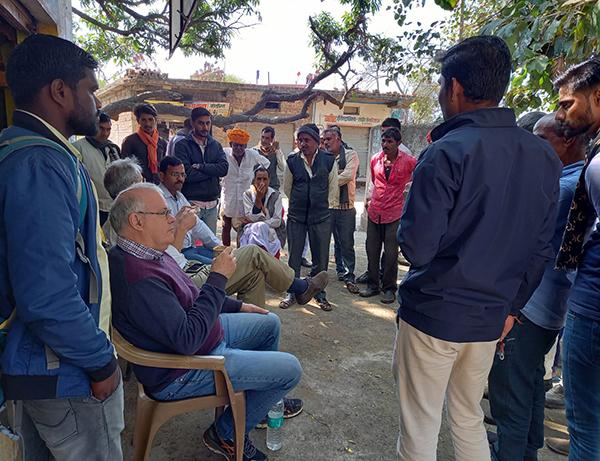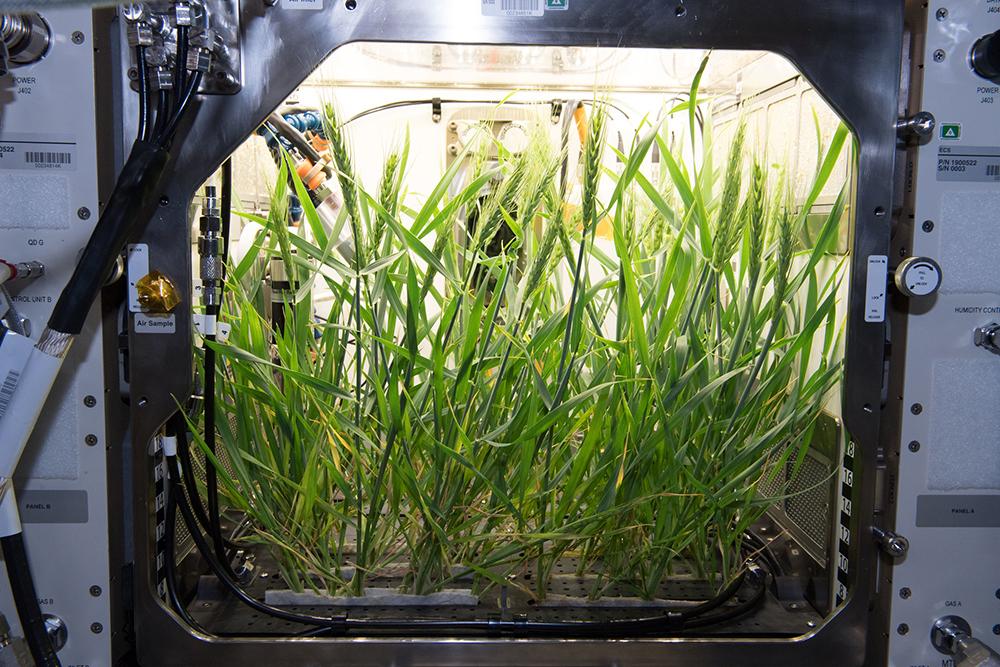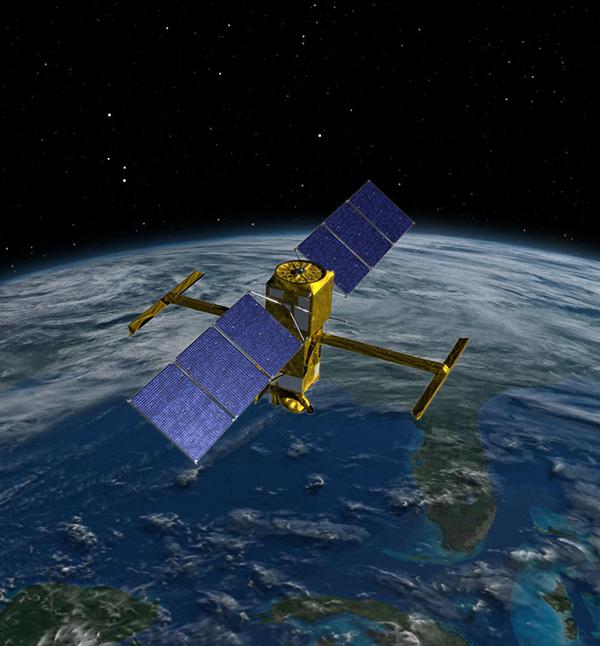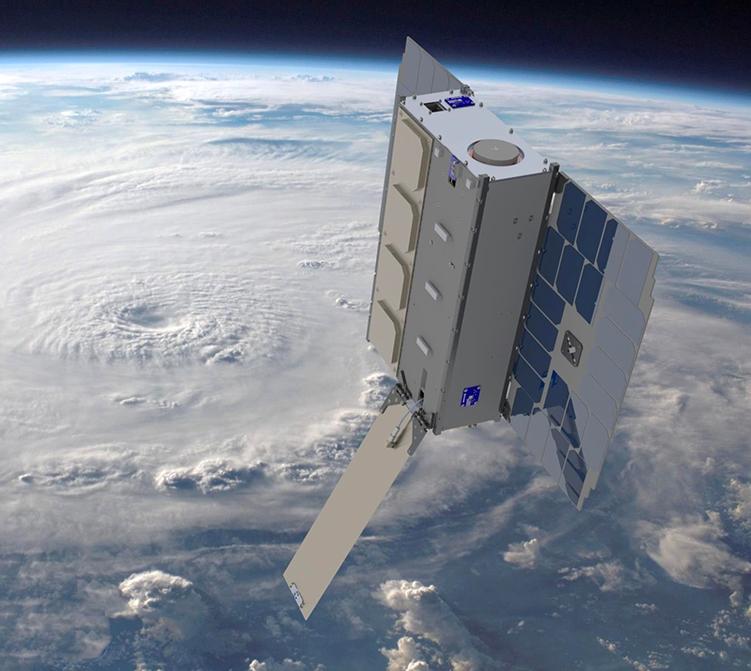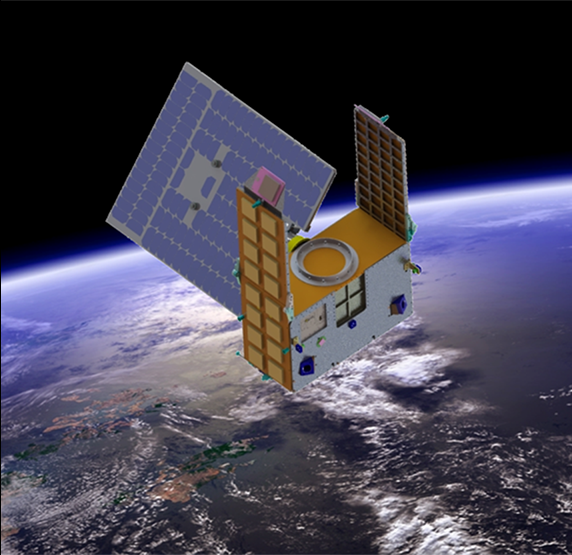Detecting Plant Stress
A new tool helps farmers, foresters and other growers, detect unhealthy crops before the human eye can see the damage. Through an exclusive patent license from NASA Stennis Space Center, Spectrum Technologies, Inc., of Plainfield, Illinois, has developed a hand-held tool, called Observer,™ for detecting plant stress.
Developed by two NASA researchers, the Observer shows the viewer which plants are under stress through multispectral imaging. Multispectral imaging is the use of specific wavelengths of the light spectrum to obtain information about objects--in this case, plants. With this device, several wavelengths of light obtain information about the plant and results are immediately processed and displayed.
Plant stress is caused by unfavorable environmental conditions, such as a lack of nutrients, insufficient water, disease, or insect damage. If conditions are unfavorable, leaf chlorophyll content will begin to decrease. Without instrumentation, this decrease is virtually undetectable until a leaf begins to change color. However, by the time discoloration occurs, the plant may already be too damaged to save.
NASA research found that previsible signs of stress can be detected by measuring the chlorophyll content based on light energy reflected from the plant. The Observer detects stress up to 16 days before deterioration is visible to the eye. Early detection provides an opportunity to reverse stress and save the plant.
The Observer is a hand-held, easily operated device. The operator simply points it at the leaf and pushes a button to achieve immediate readings. Since the unit is designed for close range use, optimal readings are achieved when the device is held approximately 18-24 inches from the leaf. However, results have been recorded from as far as 20 yards away from the plant. Once the button has been pressed, the multispectral imaging process goes to work and results are supplied within several seconds. Because the unit works in both natural and artificial light, it is suitable for outdoor or indoor planting.
In terms of cost, the device can mean substantial savings. When compared with costly, lengthy laboratory tests, Spectrum's device comes out top dollar. The Observer is not only cheaper and more accurate than previous detection methods, but it also aids in crop preservation. It replaces laboratory testing, freeing more resources to advance crop and forest science.
Commercial applications are found in almost any field where plant life is present, including agriculture, precision farming, horticulture, and plant research. Farmers using the Observer will lose less crop, ensuring maximum harvest. Entire forests could be saved through the early detection of various tree diseases. There is a very real opportunity to create an overall healthier plant life for commercial growers.
Mike Thurow, president and founder of Spectrum Technologies, Inc., expects this device will cultivate healthier plants, reduce chemical expenditure, and monitor the physiological effects of plants.
The Observer™ is a trademark of Spectrum Technologies, Inc.
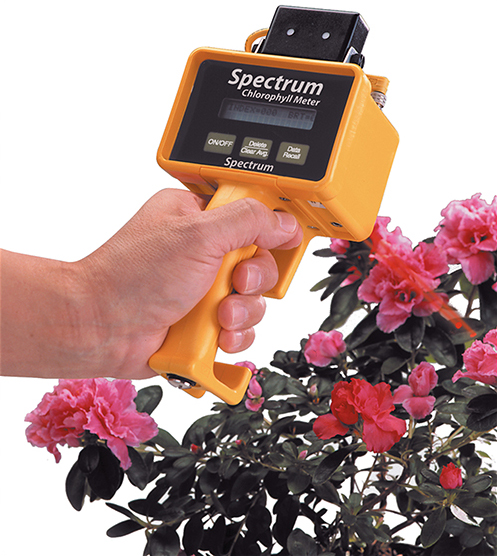
The Observer™ is a hand-held device used to assist with monitoring the health of plants by providing information about nutrient and water levels, and possible disease or damage.




